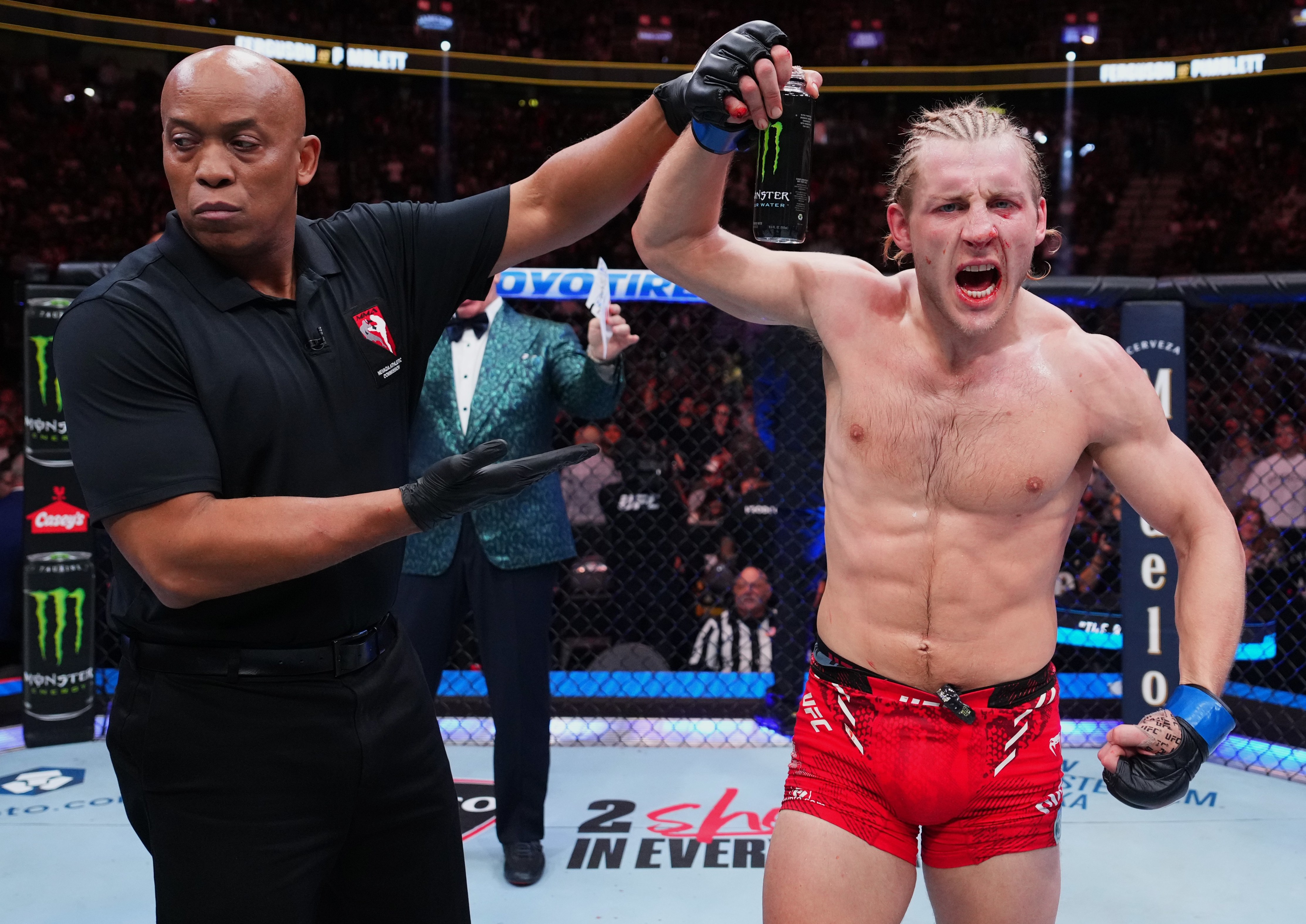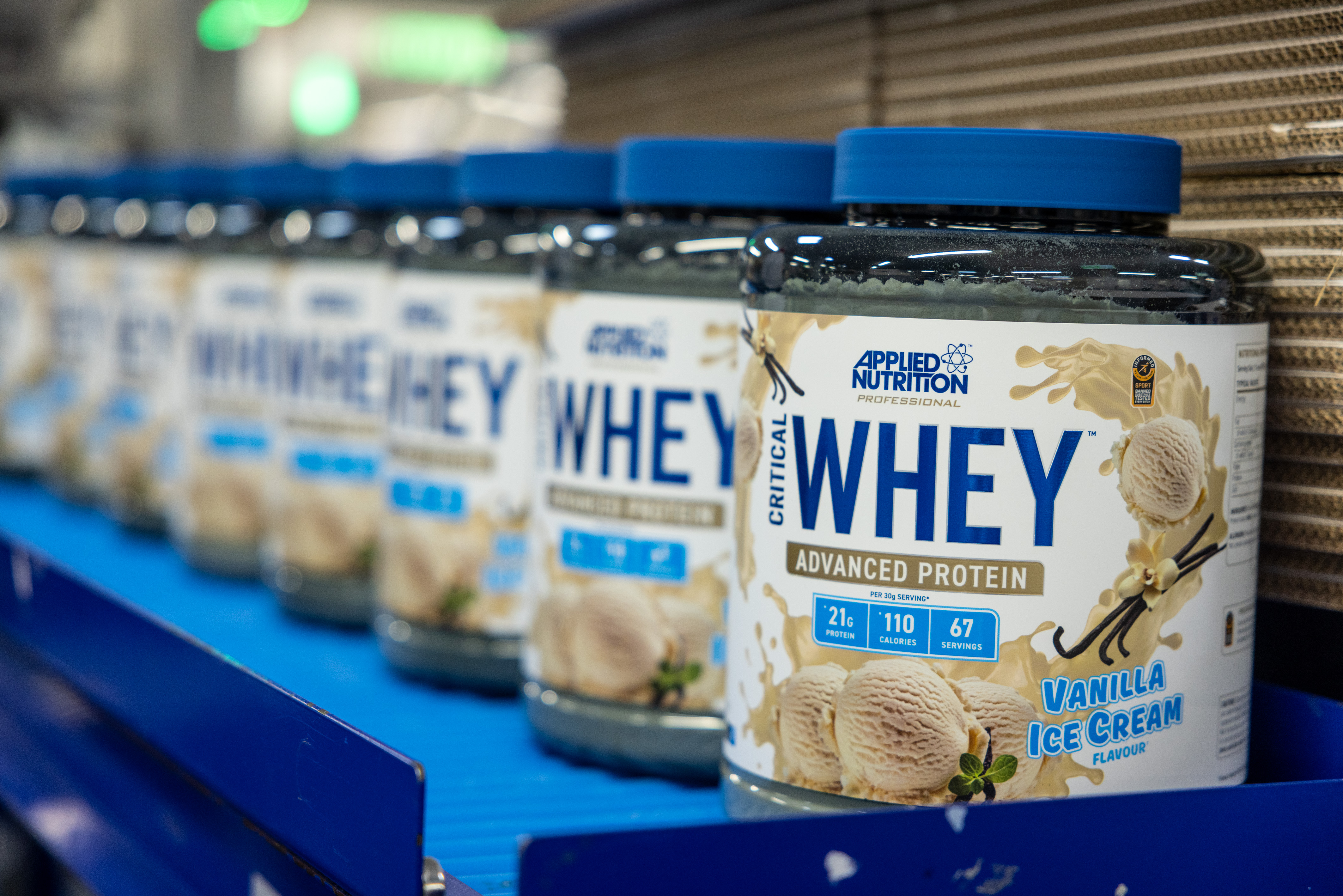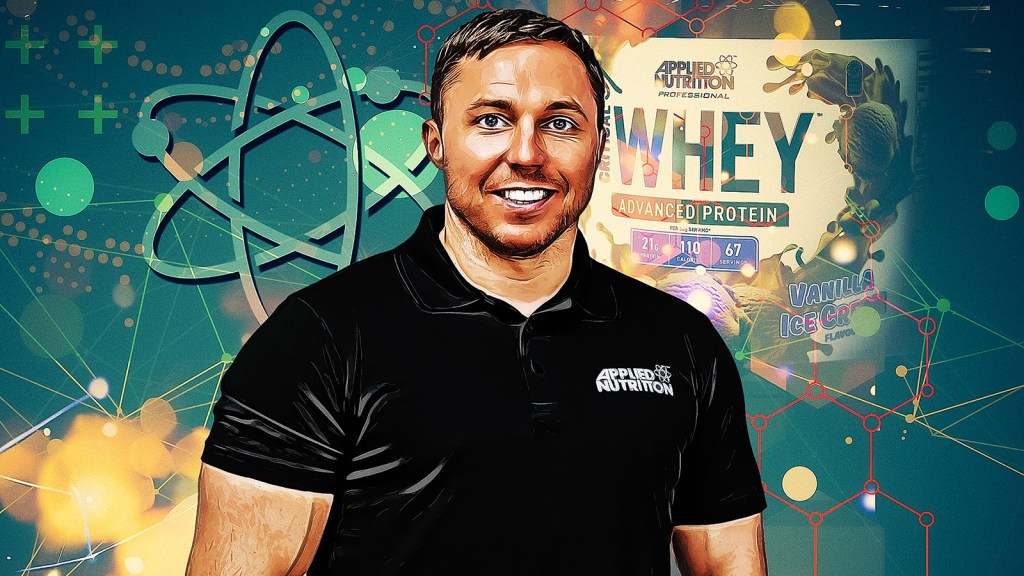Thomas Ryder’s Quest to Take Applied Nutrition Public
Thomas Ryder puts on a lab coat and hairnet before entering a bustling, windowless production room. Inside, five production lines churn out herbal tablets, protein powders, and isotonic gels, all promising various health benefits.
Ryder, a native of Liverpool, grabs a container of cola-flavored beef protein powder. “That’s made from cow skin,” he says nonchalantly. “It used to be made from bones, but it stank and tasted horrible.”
Ryder has turned into a Willy Wonka-like figure for the protein-obsessed generation, managing the production facility of Applied Nutrition, the supplement business he took over a decade ago. Situated in Knowsley, Merseyside, it’s not far from the council house where Ryder was raised by his grandparents.
At 40, Ryder is planning a stock market debut that could result in a £125 million payout.
Applied Nutrition, backed by JD Sports, aims to float on London’s main market in the fourth quarter. Ryder intends to reduce his 55% stake to 30%, which could value the company at around £500 million, potentially securing a spot in the FTSE 250.
Applied Nutrition’s sales rose 41% to £86 million last year, with pre-tax profits reaching £26 million.
“I know the potential, and we haven’t even scratched the surface. I want to be part of that journey,” Ryder remarked. “We are conservative in our valuation, not front-loading. We need to respect the market, and hopefully, it will respect us in return.”

Applied Nutrition has endorsements from athletes like UFC fighter Paddy “The Baddy” Pimblett. Moreover, the product range includes collagen peptides and mushroom powders aimed at anyone interested in health supplements. Coleen Rooney is the brand’s latest ambassador.
As CEO, Ryder regularly consumes Applied Nutrition’s products, including protein powder, creatine, collagen, and greens powder, and has been giving prospective investors tours of the facility.
Steven Granite, Ryder’s operations director, jokes that City fund managers sometimes need a translator for Ryder’s fast-talking, Scouse-accented speech. The company’s public debut will be closely watched, as market floats are currently rare.
Ryder’s path to success has been challenging. Raised in a council flat and later by his grandparents in Kirkby, he credits his work ethic to his grandfather, who worked long hours as a security guard.

“With those low-paid jobs, you had to work long hours to make ends meet. My grandparents made sure I never went without anything, and I attribute my success to them.”
Ryder left school at 16 determined to create a better life. He started his own ventures alongside working as a scaffolder, even delivering pizza for his business, Sopranos.
Passionate about workout supplements, Ryder opened Body Fuel at 18, selling protein powders and creatine. By his early twenties, he transitioned to selling supplements full-time and took over Applied Nutrition in 2014, reformulating products to improve their taste and nutritional content.

After renting a small factory, Ryder purchased old equipment and hired a handful of staff, realizing the business’s scalability.
The global sports nutrition market has grown 51% to $28.1 billion (£21.5 billion) over the past five years, with projections to reach $37.6 billion by 2028. Ryder notes that sports nutrition has become mainstream, not just for bodybuilders but for everyday fitness enthusiasts.
Despite skepticism around health claims of supplements, Ryder asserts that his products adhere to European Food Safety Authority guidelines.
Oliver Cookson, founder of Myprotein, remarked that consumers are increasingly choosing “high-quality, science-backed” supplements like those made by Applied Nutrition.
In 2020, Ryder explored selling part of his stake to private equity firms. Concurrently, JD Sports discussed manufacturing a supplement range for its gyms, and JD’s then-executive chairman, Peter Cowgill, decided to invest, seeing potential in Ryder’s approach and vision.
JD, holding a 30% stake, intends to reduce its share to between 5% and 10% post-float. Cowgill, after leaving JD, reinvested personally and will be named a non-executive director. The board includes industry veterans and experts.
Ryder has cultivated a company reflecting his humble beginnings, maintaining a down-to-earth atmosphere despite rapid growth.
Looking ahead, Applied Nutrition may need to adjust operations for new stakeholders, such as addressing HR dynamics with Ryder’s partner, Lydia Paxton, as head of HR.
Planning for overseas expansion, particularly in America, Ryder believes floating will raise the profile necessary to compete globally. Applied Nutrition opened a Dallas office in 2022, with significant growth expected.
“We have huge growth potential, especially in the US,” Ryder stated confidently.
For now, Ryder takes pride in his Merseyside operations, crafting powders delivered from Malta to Saudi Arabia and China.
“Producing in Knowsley and shipping worldwide means a lot to us,” Ryder concluded.





Post Comment